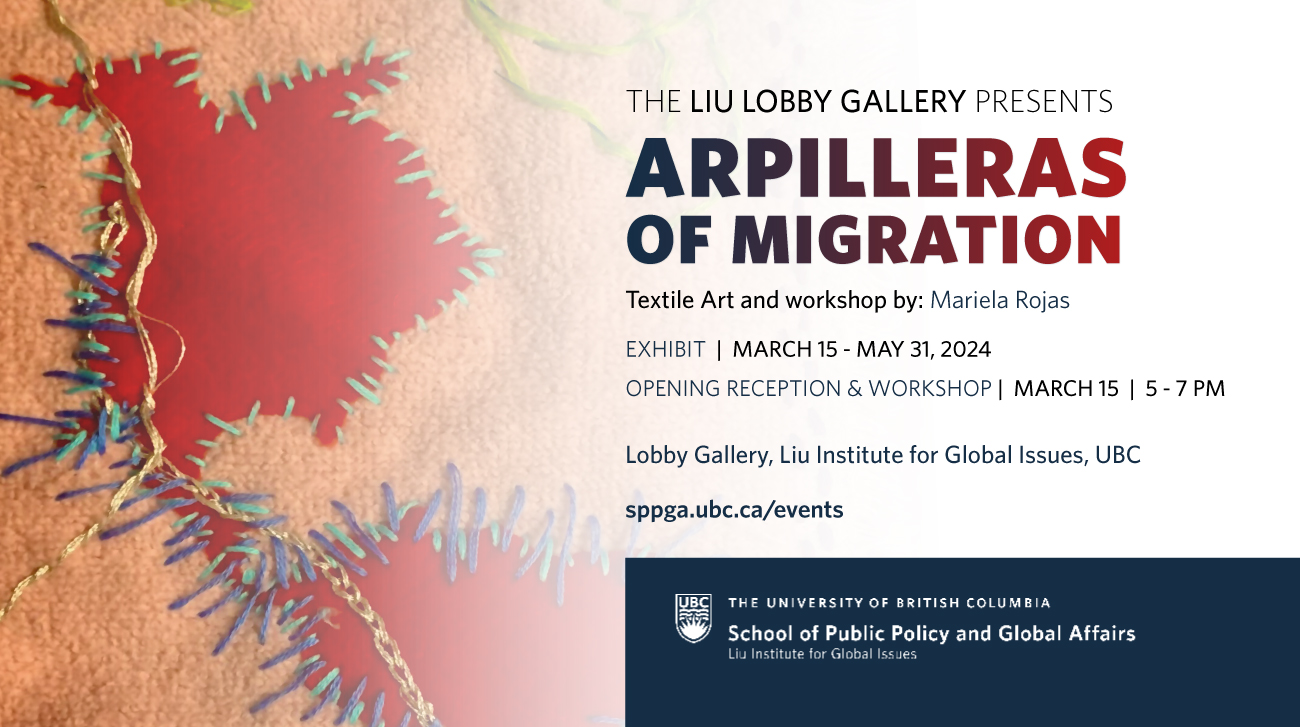Beyond Debt-Trapping: Encompassing Accumulation, Infrastructure, and China’s Spatiotemporal Fix
Speaker: Jessica DiCarlo, Chevalier Postdoctoral Fellow in Transportation and Development in China, Institute of Asian Research, School of Public Policy and Global Affairs (SPPGA)
Moderator: Associate Professor Kristen Hopewell, Canada Research Chair in Global Policy, School of Public Policy and Global Affairs (SPPGA)
Discussants:
- Edi Qereshniku, Student, Master of Public Policy and Global Affairs
- Jemimah Ogundele, Student, Master of Public Policy and Global Affairs
This talk explores the logics of Chinese capital through the financing of the Laos-China Railway. Railways often do not generate significant revenue, nor enough capital to repay project debt. It is no surprise that debt relations remain one of the most prominent concerns circulating around the Laos–China Railway. The project has attracted intense scrutiny from observers around the world due to its cost, and has been criticized as an example of predatory lending and debt-trap diplomacy—in which China uses loans to ensnare countries for political or ideological reasons. However, it is overly simplistic to assume that capital always operates under a singular profit motive or as geopolitically predatory. Instead, many of the risks and financing challenges of the railway have fallen and will fall on Chinese state-owned enterprises (SOEs).
In this talk, I push back on narratives of debt-trapping and suggest that Chinese capital operates with additional logics of what C.K. Lee terms “encompassing accumulation.” I show that rather than solely profit-seeking or debt-trapping, there are additional logics of capital at play. First, debt provides an outlet for overaccumulation by delaying devaluation of domestic Chinese capital. Theoretically, I build on Lee’s theory of encompassing accumulation by adding a temporal argument on delay of railway capital. Second, this deferral is possible due to the involvement of Chinese SOEs and the use of public-private partnerships and joint ventures, which able to either take on long-term risk or transfer risk to lower-level actors. I argue that Chinese capital operates with a set of imperatives that are driven by domestic economic considerations and by the dual character of SOEs and joint ventures as simultaneously commercial and embedded in the state. This affords SOEs more tolerance for risk and more power to offload it.
Speaker’s Bio: Dr. Jessica DiCarlo is a geographer and the Chevalier Postdoctoral Research Fellow in Transportation and Development in China at the Institute of Asian Research, School of Public Policy and Global Affairs at the University of British Columbia. She received her PhD in Geography from the University of Colorado Boulder, and her Master’s in Development Studies from the University of California Berkeley. In 2019, she was a Global China Research Fellow at Boston University’s Global Development Policy Center. Jessica’s research focuses on Chinese capital and infrastructure as global drivers of political-economic and environmental change. Her dissertation drew on seventeen months of ethnographic fieldwork in Laos and China, where she examined the construction and planning of the Laos-China Railway and related economic zones. She situates her research in critical development studies, political ecology, political and economic geography, and infrastructure studies. Learn more: www.jessicadicarlo.org
Moderator’s Bio: Kristen Hopewell is Canada Research Chair in Global Policy in the School of Public Policy and Global Affairs at the University of British Columbia. Her research specializes in international trade, global governance, industrial policy and development, with a focus on emerging powers. She is a Wilson China Fellow at the Wilson Center in Washington, DC. Dr. Hopewell is the author of Clash of Powers: US-China Rivalry in Global Trade Governance (Cambridge University Press, 2020) and Breaking the WTO: How Emerging Powers Disrupted the Neoliberal Project (Stanford University Press, 2016).
Disclaimer: Please note that by using this service, your information will be stored on the Eventbrite server, which is located outside Canada. If you do not wish to use this service, please email reiza.gabriel@ubc.ca directly to register. Thank you.
Co-hosted by: The Centre for Chinese Research at the Institute of Asian Research and the School of Public Policy and Global Affairs

